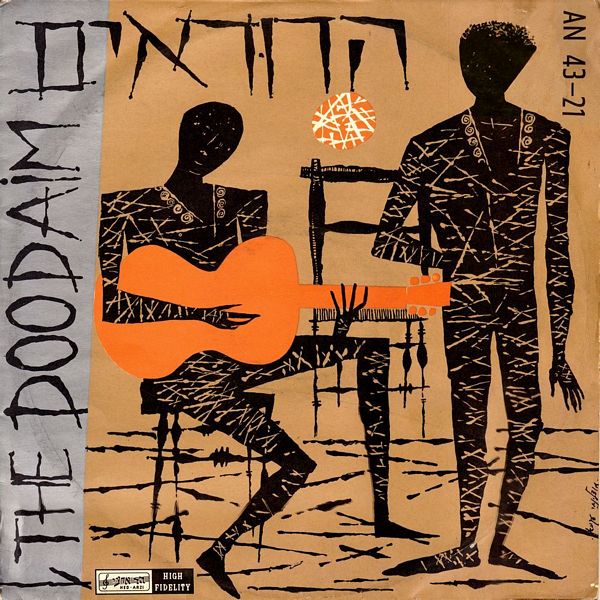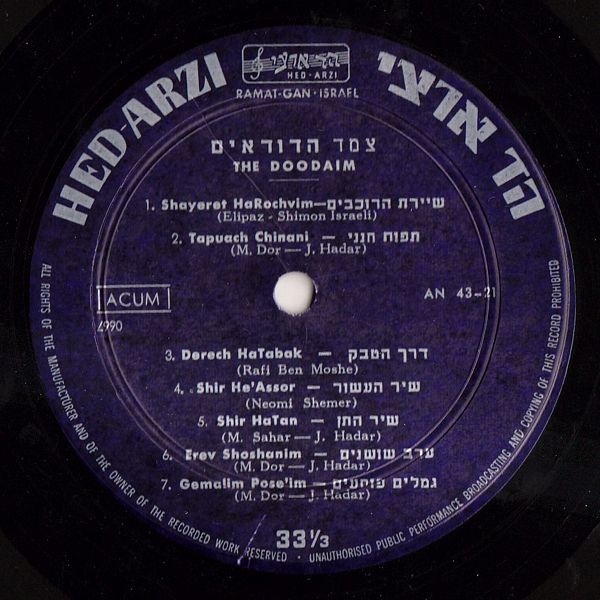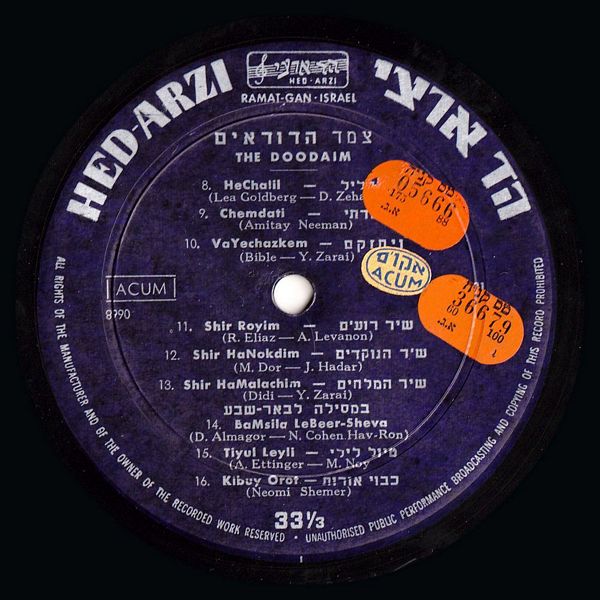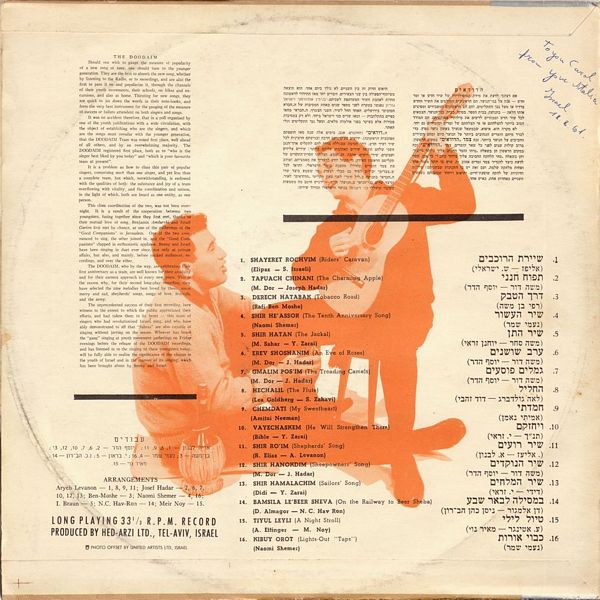

 |


 |
Sleeve Notes
Should one wish to gauge the measure of popularity of a new song or tune, one should turn to the younger generation. They are the first to absorb the new song, whether by listening to the Radio, or to recordings, and are also the first to pass it on and popularize it, through the channels of their youth movements, their schools, on hikes and excursions, and also at home. Thirsting for new songs, they are quick to jot down the words in their note-books, and form the very best instrument for the gauging of the measure of success or failure attendant on both singers and songs.
It was no accident therefore, that in a poll organised by one of the youth publications with a wide circulation, with the object of establishing who are the singers, and which are the songs most popular with the younger generation, that the DOODAIM Team was voted first place, well ahead of all others, and by an overwhelming majority. The DOODAIM registered first place, both as to "who is the singer best liked by you today" and "which is your favourite team at present".
It is a problem as how to class this pair of popular singers, comprising more than one singer, and yet less than a complete team, but which, notwithstanding, is endowed with the qualities of both: the substance and joy of a team overflowing with vitality, and the coordination and unison, in the light of which, both are heard as one entity, as one person.
This close coordination of the two, was not born overnight. It is a result of the cooperation between two youngsters, fusing together since they first met, thanks to their mutual love of song. Benjamin Amdurski and Israel Gurion first met by chance, at one of the gatherings of the "Good Companions" in Jerusalem. One of the two commenced to sing, the other joined in, and the "Good Companions" clapped in enthusiastic applause. Benny and Israel have been singing in duet ever since, not only at private affairs, but also, and mainly, before racked audiences, recordings, and over the ether.
The DOODAIM, who by the way, are celebrating their first anniversary as a team, are well known for their assiduity and for their earnest approach to every new piece. This the reason why, for their second long-play recording, they have selected the nine melodies best loved by them: songs merry and sad, shepherds' songs, songs of love, festivals, and the army.
The unprecedented success of their first recording, bore witness to the extent to which the public appreciated their efforts, and had taken them to its heart — this team of singers who had revolutionised Israeli song, and who have ably demonstrated to all that Sabras" are also capable of singing without jarring on the senses Whoever has heard the "gang" singing at youth movement gatherings on Friday evenings before the release of the DOODAIM recordings, and has listened in to the singing of these youngsters today, will be fully able to realise the significance of the change in the youth of Israel and in the manner of its singing, which has been brought about by Benny and Israel.